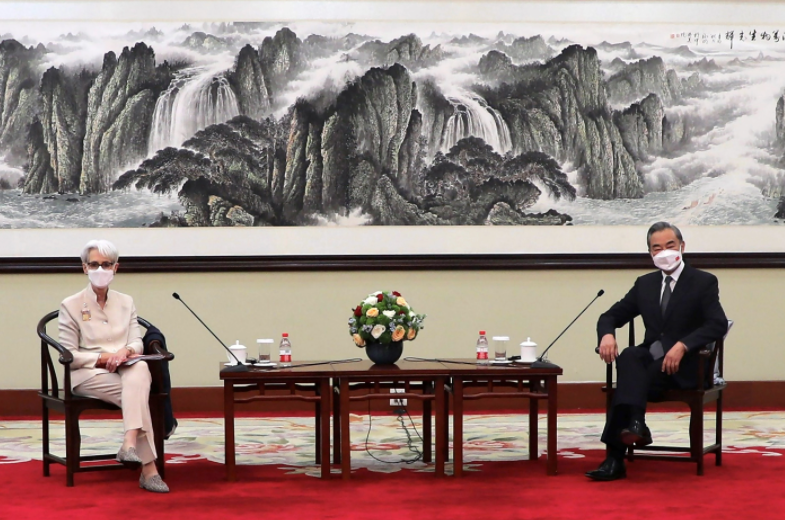Wang Fan, Vice President, China Foreign Affairs University
Oct 07, 2021
The new three-way alliance reflects a new U.S. orientation toward its partners as it seeks to raise barriers to China. Giving a $50 billion cold shoulder to France over nuclear submarine technology is just one example.
Zhang Monan, Deputy Director of Institute of American and European Studies, CCIEE
Oct 02, 2021
In a field where competition for science and technology, rule-making and dominance are natural, China and the United States have both conflicting a complementary interest. There is a lot of room for cooperation.
Cui Liru, Former President, China Institutes of Contemporary International Relations
Sep 18, 2021
The U.S. president’s hands are tied by Democrats’ slim majority in Congress, and Republican are piling on the pressure ahead of elections. So it will be tough for the U.S. to change its policy course anytime soon, so long as those in policymaking circles stick to their views.
Chen Zinan, Assistant Researcher, Maritime Strategy Studies, CICIR
Sep 18, 2021
Maintaining the old zero-sum mentality against China, the United States starts with its own interests in mind, rather than the needs of the island nations. Its diplomatic and military focus will not contribute to development and will ultimately fail.
Li Yan, Director of President's Office, China Institutes of Contemporary International Relations
Aug 23, 2021
For a decade, the focus of the United States has shown a high degree of continuity, starting with George W. Bush and followed by Barack Obama, Donald Trump and now Joe Biden. But America is now paying greater attention to detail and adding new features to its geostrategic approach.
Tao Wenzhao, Honorary Member of the Chinese Academy of Social Sciences; Fellow, CASS Institute of American Studies
Aug 18, 2021
The United States has been unsuccessful in its attempts to rally Southeast Asia against China. In recent months, it has mounted a transparent effort to curry favor in the region. But nobody wants to choose between major trading powers. They’d rather keep their options open.
Richard Javad Heydarian, Professorial Chairholder in Geopolitics, Polytechnic University of the Philippines
Aug 12, 2021
The U.S. has seemingly pulled out all the stops to advance its agenda in Southeast Asia, hoping to entice countries away from China. Yet, as members of China’s neighborhood, ASEAN members will find it hard to create distance between themselves and China, literally and figuratively.

Nie Wenjuan, Deputy Director of Institute of International Relations, China Foreign Affairs University
Aug 03, 2021
They won’t resolve the significant issue of how China and the U.S. should go forward. But at least the talks established a strategic consensus on managing competition. More talks are likely — even amid quarrels.
Guo Chunmei, Associate Researcher, Institute of Southeast Asian and Oceanian Studies, CICIR
May 28, 2021
Counting on the United States to contain China has come at a heavy price. Worse, Australia’s strategic value as a middle power will be eroded dramatically if it continues to bash China in an era of uncertainty in which one can hear faint echoes of the drums of war.
Su Jingxiang, Fellow, China Institutes for Contemporary International Relations
Apr 28, 2021
Japan seems developed and orderly, but that’s only its outward appearance. In truth, it is a vassal of the United States, which has adopted chaos as standard diplomatic theory. Now Japan wants to discharge radioactive water from the Fukushima nuclear accident into the sea. Who will say no?
Back to Top

- China-US Focus builds trust and understanding between the U.S. and China through open dialogue among thought leaders.
- Our Offerings
- Topics
- Videos
- Podcasts
- Columnists
- Research Reports
- Focus Digest
- Stay Connected
-
Thanks for signing up!
- Get the latest stories from China-US Focus weekly.